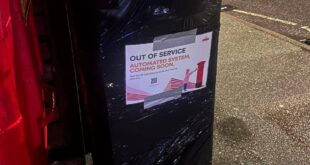On Thursday, Arrival, an electric vehicle startup, exited stealth mode after securing $111.5 million from automakers Hyundai and Kia. The two South Korean corporations are working with the British firm to develop a fleet of battery-powered delivery vans. Because of its latest cash injection, TechCrunch notes the company has a value of €3 billion ($3.6 billion).
Arrival’s Innovative Approach to Electric Vehicles
While many electric vehicle startups have dedicated themselves to pursuing the consumer market, Arrival produces automobiles specifically for commercial usage. The firm further distinguishes itself from its competitors because of its atypical approach to manufacturing.
Instead of operating sprawling facilities designed to produce hundreds of thousands of units annually, it maintains 10,000 square foot microfactories. Moreover, Arrival only intends to assemble 10,000 vans a year. The firm also employs a modular platform when assembling its automobiles, meaning it can build different models at the same plant.
Currently, Arrival offers an electric van with a 200-mile range and 500 cubic feet of cargo space. However, the startup will provide vehicles with a variety of battery capacities based on its customers’ needs. The emerging carmaker also saves money by eschewing metal stamping and auto painting.
Despite its unconventional methodologies, Arrival has a lot going for it. The firm’s lean and agile approach to manufacturing should help it keep a handle on production costs. Also, the startup has secured deals to test its prototypes with DHL, Royal Mail, and UPS.
Moreover, a new report from the World Economic Forum predicts a 30 percent increase in last-mile delivery vehicles emissions by 3030. Aware of the problem, several larger urban centers have taken to barring gas-powered automobiles from operating on their streets.
Accordingly, corporations will need to replace their old fleets with new zero-emission automobiles in the near-term. Indeed, e-commerce giant Amazon recently placed an order with electric vehicle maker Rivian for 100,000 electric delivery vans.
Hyundai’s $35 Billion Commitment to Next-Generation Vehicles
Arrival isn’t the only next-generation vehicle company Hyundai has chosen to put its financial backing behind. Last year, the South Korean corporation committed to spending $35 billion to develop electric and autonomous car technologies. The company also pledged to release 23 varieties of battery-powered automobiles by 2025.
So far, Hyundai has backed up its announcement with significant investments in zero-emission and self-driving car projects.
Last June, the firm invested just under $30 million in a self-driving transport company called Aurora. The corporation intends to integrate the startup’s autonomous operation technology into its HEXO hydrogen-powered SUV.
In addition, Hyundai has directed its capital to fund other, less traditional forms of transportation.
In conjunction with Uber, the firm is developing an electric flying taxi, a model of which was shown at the 2020 Consumer Electronics Show. The aircraft, codenamed SA-1, can accommodate a pilot and three passengers and has vertical takeoff and landing capability. The two corporations intend to have a fleet of aerial cabs in the sky by 2023.
Given the size of its financial commitment, Hyundai will likely fund the development of several next-generation vehicles.
Source link



